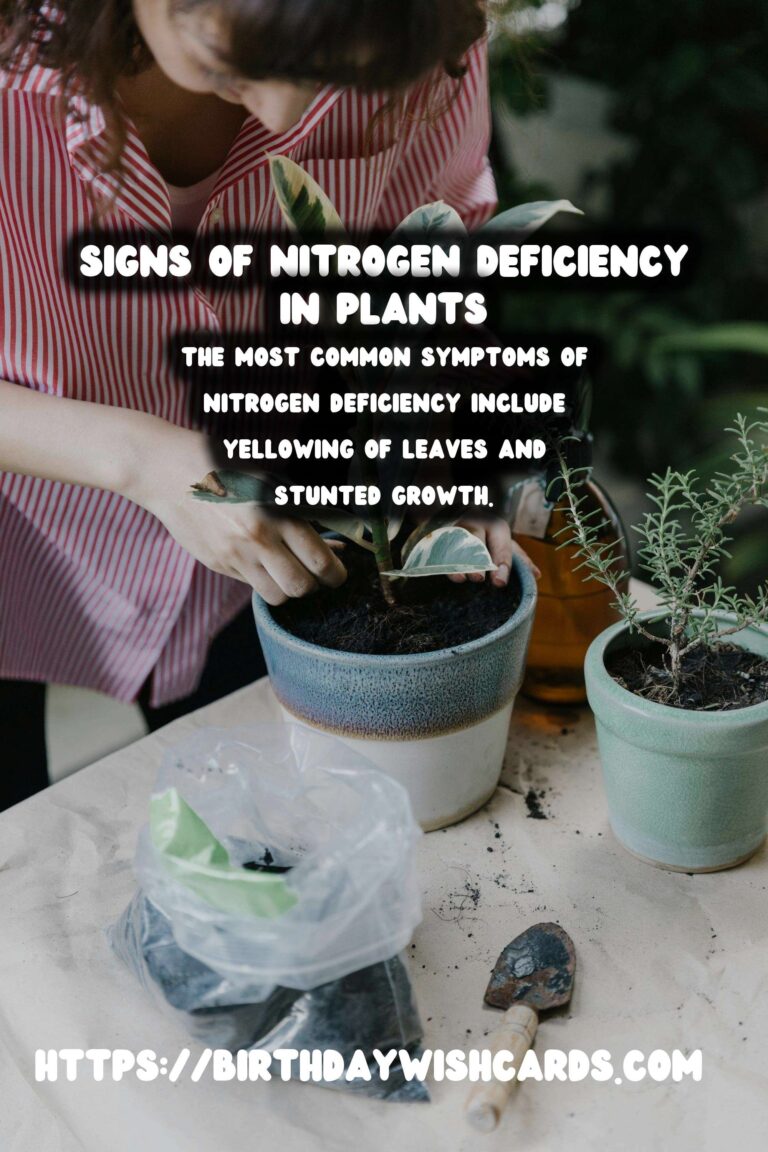
Nitrogen is a critical nutrient for plant growth and development. It plays a vital role in the formation of proteins, enzymes, and chlorophyll, which are essential for photosynthesis and overall plant health. However, nitrogen deficiency is a common problem in many gardens and agricultural fields, leading to stunted growth and reduced yields.
What is Nitrogen Deficiency?
Nitrogen deficiency occurs when plants are unable to absorb enough nitrogen from the soil. This can be due to a variety of factors, including poor soil quality, improper fertilization, or environmental conditions that limit nitrogen uptake. When plants lack sufficient nitrogen, they often exhibit specific symptoms that can help identify the deficiency.
Symptoms of Nitrogen Deficiency
The most common symptoms of nitrogen deficiency include:
- Yellowing of Leaves: Older leaves may turn yellow, starting from the tips and edges, as nitrogen is mobilized to new growth.
- Stunted Growth: Plants may be smaller than usual, with shorter leaves and fewer branches.
- Poor Fruit and Flower Production: Nitrogen-deficient plants often produce fewer flowers and fruits, which can impact yields.
- Thin and Weak Stems: The lack of nitrogen can lead to weaker stems that are more prone to breaking.
Causes of Nitrogen Deficiency
Several factors can contribute to nitrogen deficiency in plants:
- Poor Soil Quality: Soils lacking organic matter or those with a high sand content may not hold nitrogen effectively.
- Leaching: Excessive rainfall or irrigation can wash nitrogen out of the soil, especially in sandy soils.
- Improper Fertilization: Using fertilizers with low nitrogen content or not fertilizing at all can lead to deficiencies.
- Environmental Conditions: Cold temperatures or waterlogged soils can inhibit nitrogen uptake by plants.
How to Correct Nitrogen Deficiency
To address nitrogen deficiency, gardeners and farmers can take several steps:
- Soil Testing: Conduct a soil test to determine the nitrogen levels and identify any other nutrient deficiencies.
- Use High-Nitrogen Fertilizers: Apply fertilizers with a high nitrogen content, such as ammonium nitrate or urea, to boost nitrogen levels in the soil.
- Incorporate Organic Matter: Add organic matter like compost or well-rotted manure to improve soil quality and nitrogen retention.
- Practice Crop Rotation: Rotate crops with legumes, which can fix atmospheric nitrogen and improve soil fertility.
Preventing Nitrogen Deficiency
Preventing nitrogen deficiency involves proactive measures to ensure adequate nitrogen levels in the soil:
- Regular Soil Testing: Monitor soil nutrient levels regularly to adjust fertilization practices as needed.
- Balanced Fertilization: Use a balanced fertilizer program that includes nitrogen, phosphorus, and potassium to support healthy plant growth.
- Mulching: Apply organic mulch to conserve soil moisture and reduce nitrogen loss through evaporation and erosion.
By understanding the importance of nitrogen and how to manage its deficiency, gardeners and farmers can promote healthier plants and achieve better yields.
Nitrogen is a critical nutrient for plant growth and development. Nitrogen deficiency occurs when plants are unable to absorb enough nitrogen from the soil. The most common symptoms of nitrogen deficiency include yellowing of leaves and stunted growth. Several factors can contribute to nitrogen deficiency in plants, including poor soil quality and leaching. To address nitrogen deficiency, gardeners and farmers can use high-nitrogen fertilizers and incorporate organic matter. Preventing nitrogen deficiency involves regular soil testing and balanced fertilization. 
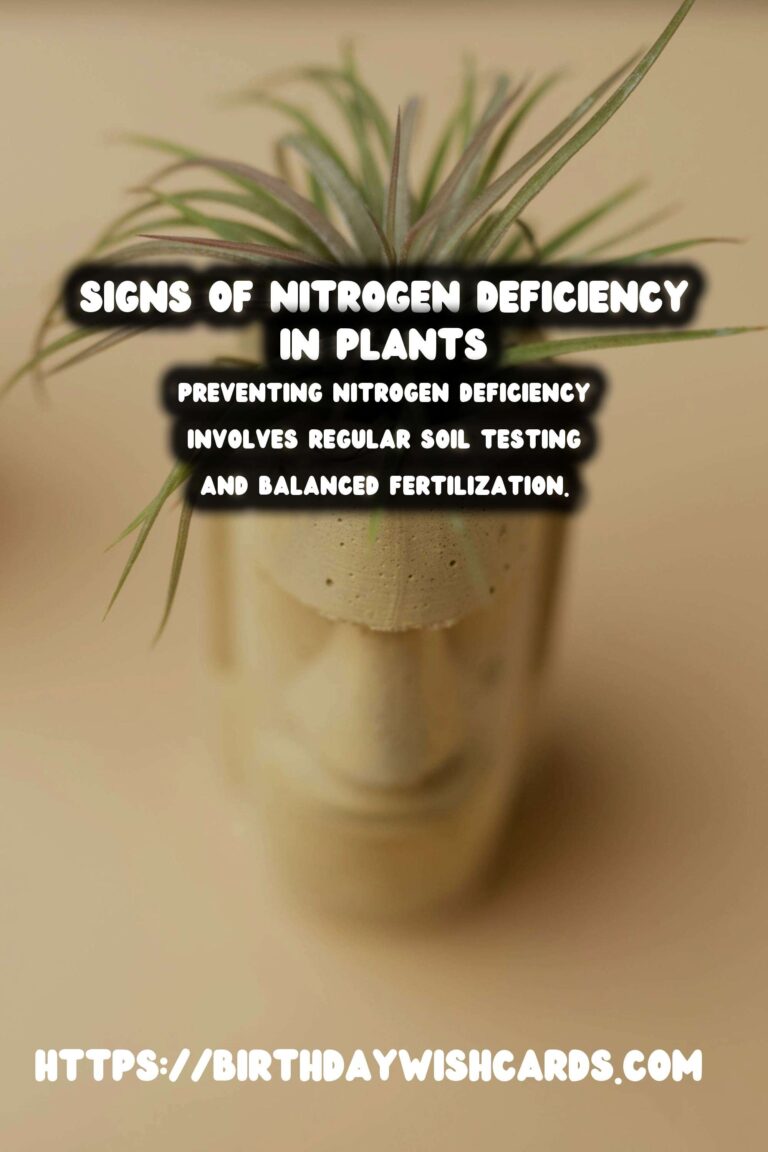
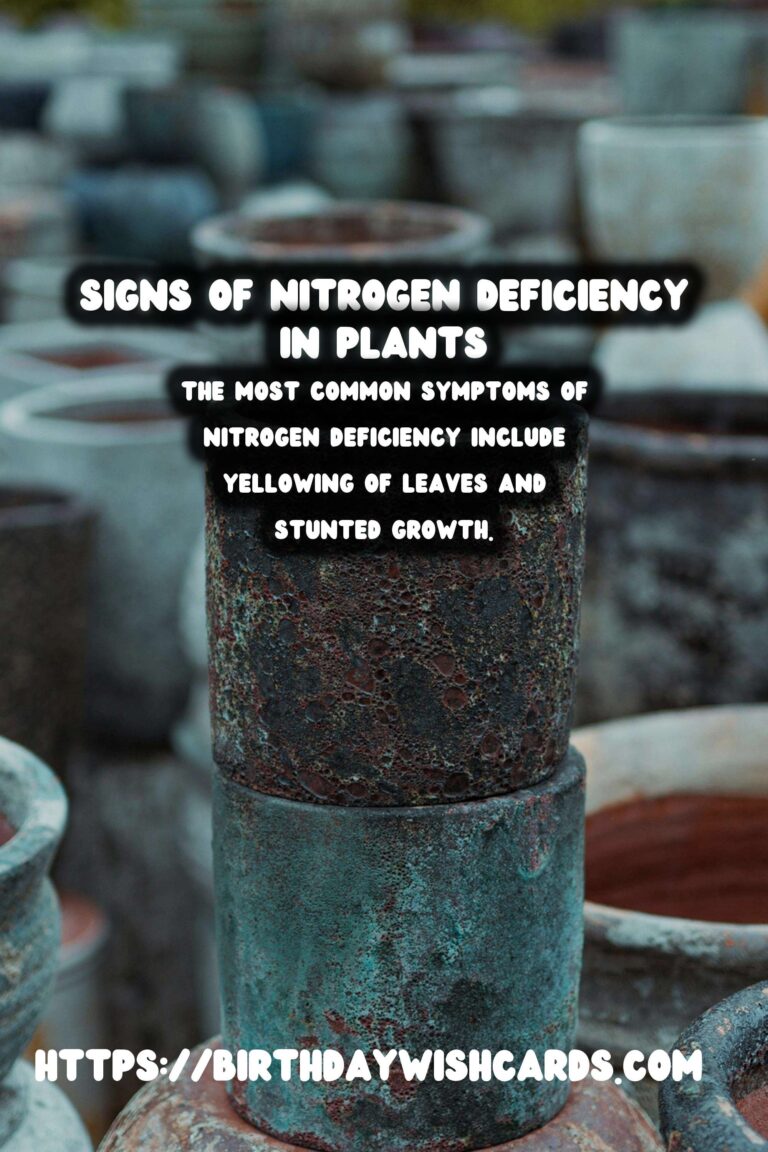
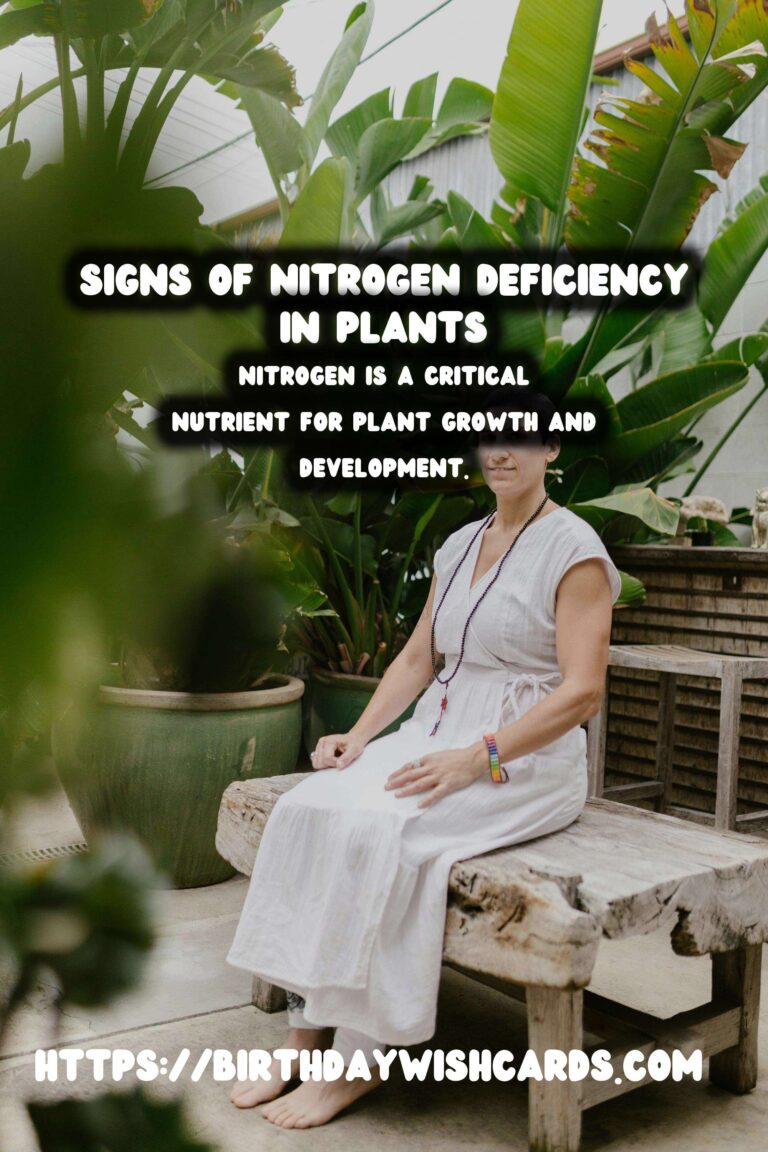
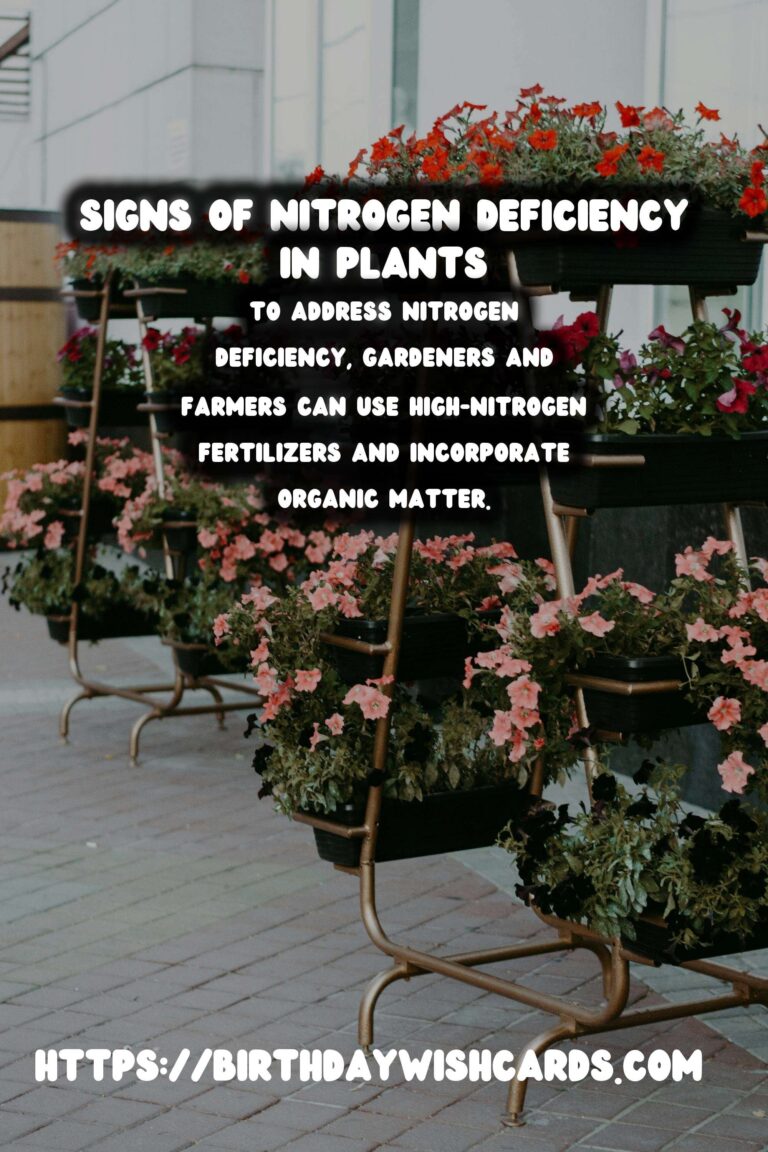
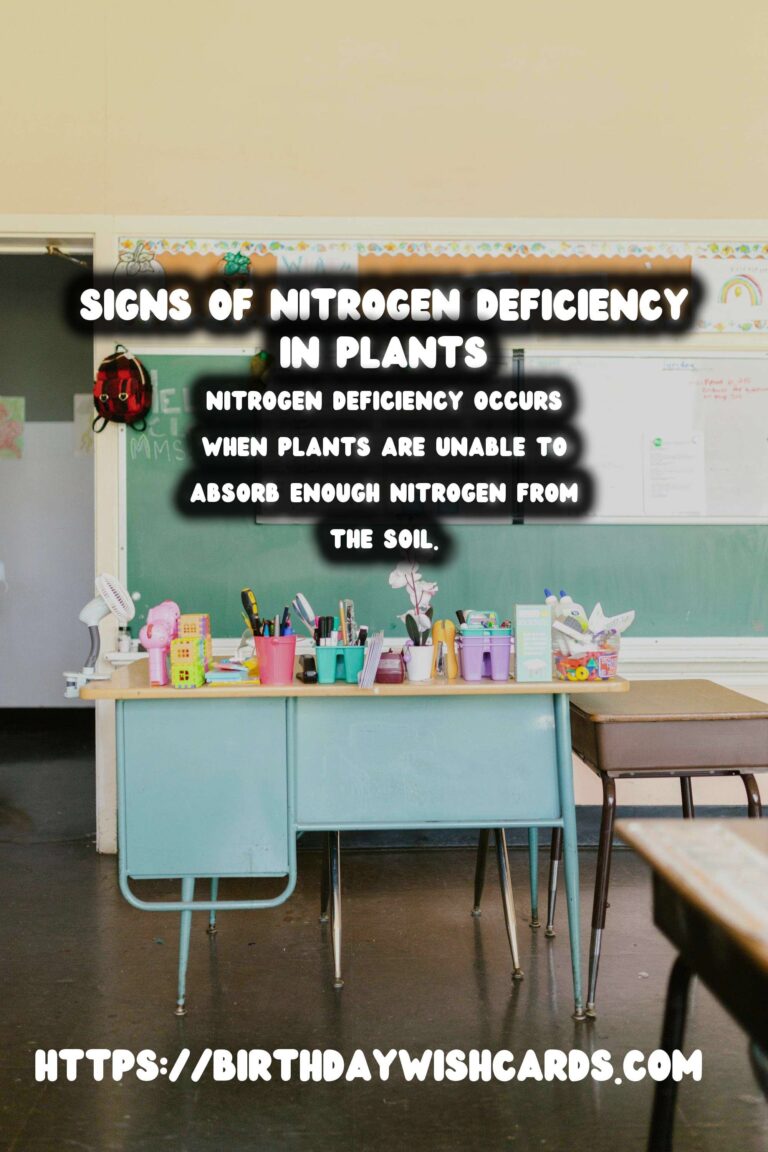
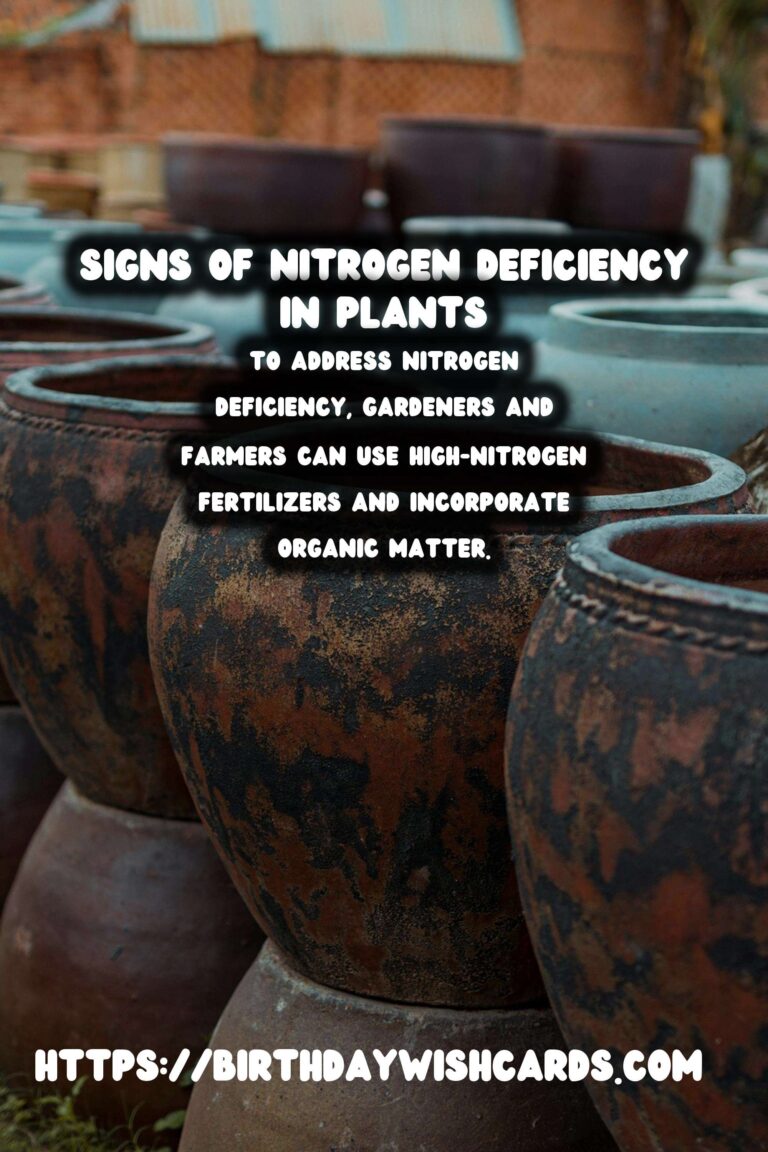
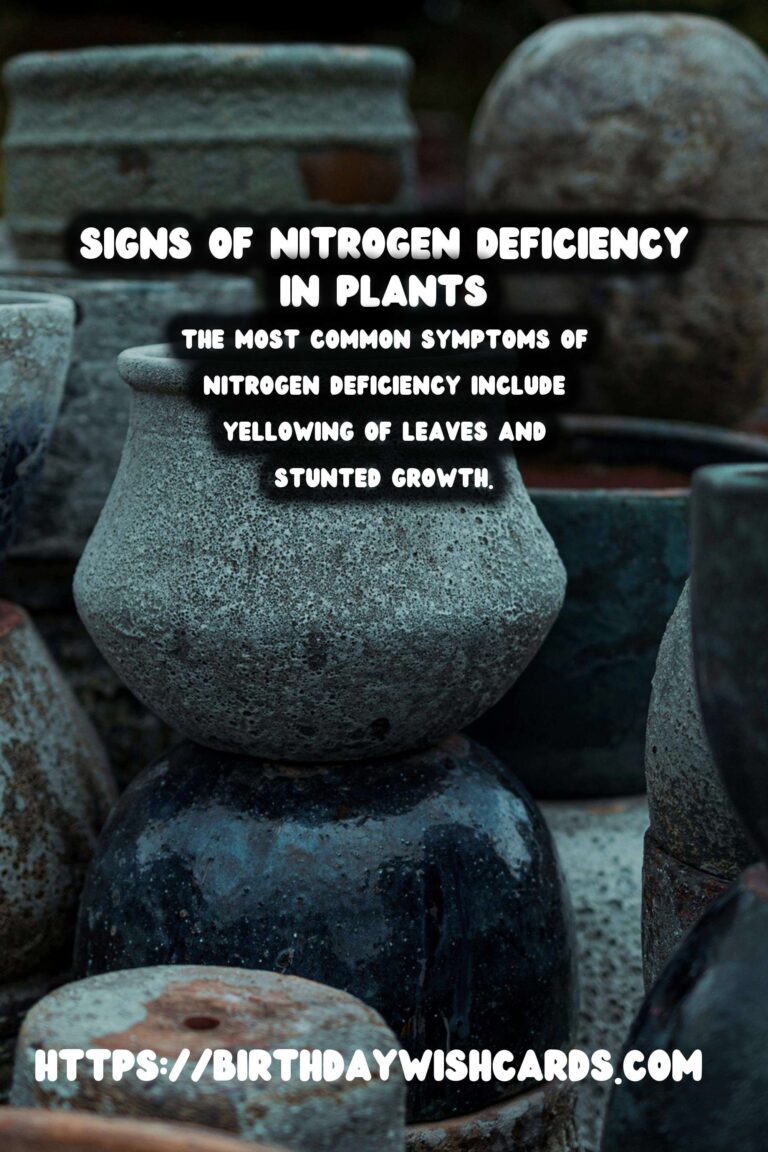

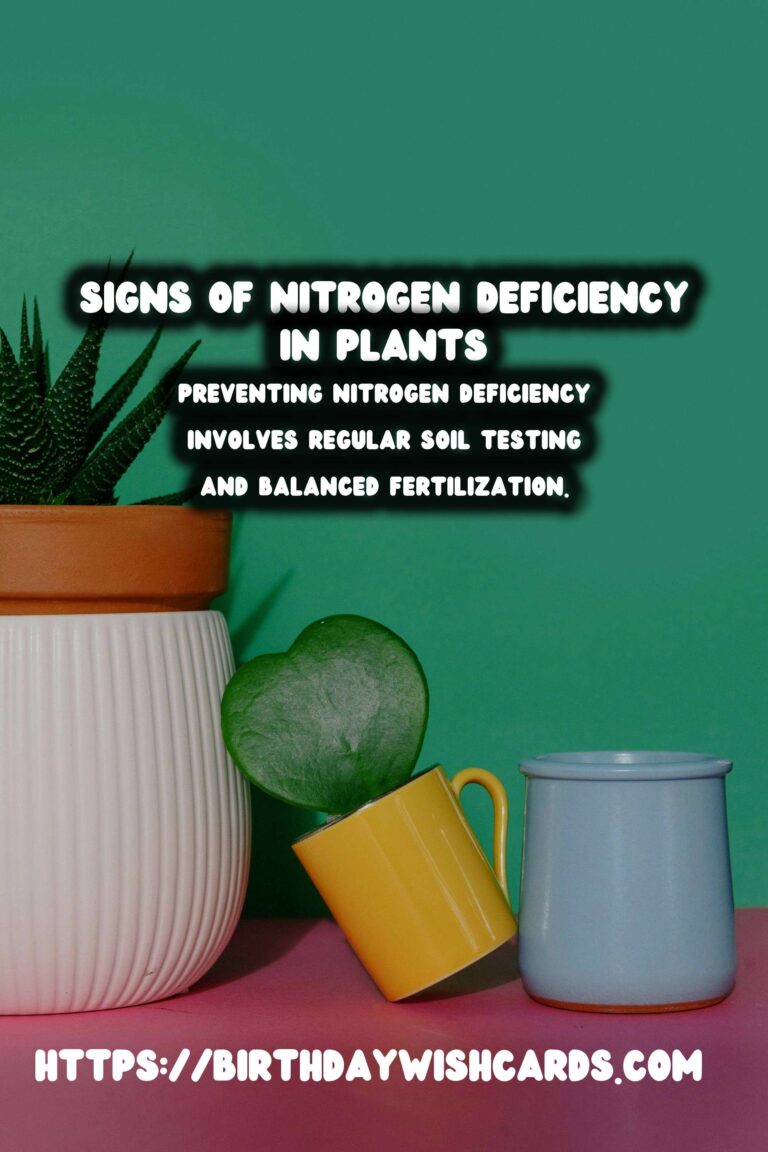
#NitrogenDeficiency #PlantNutrition #GardeningTips #Agriculture




